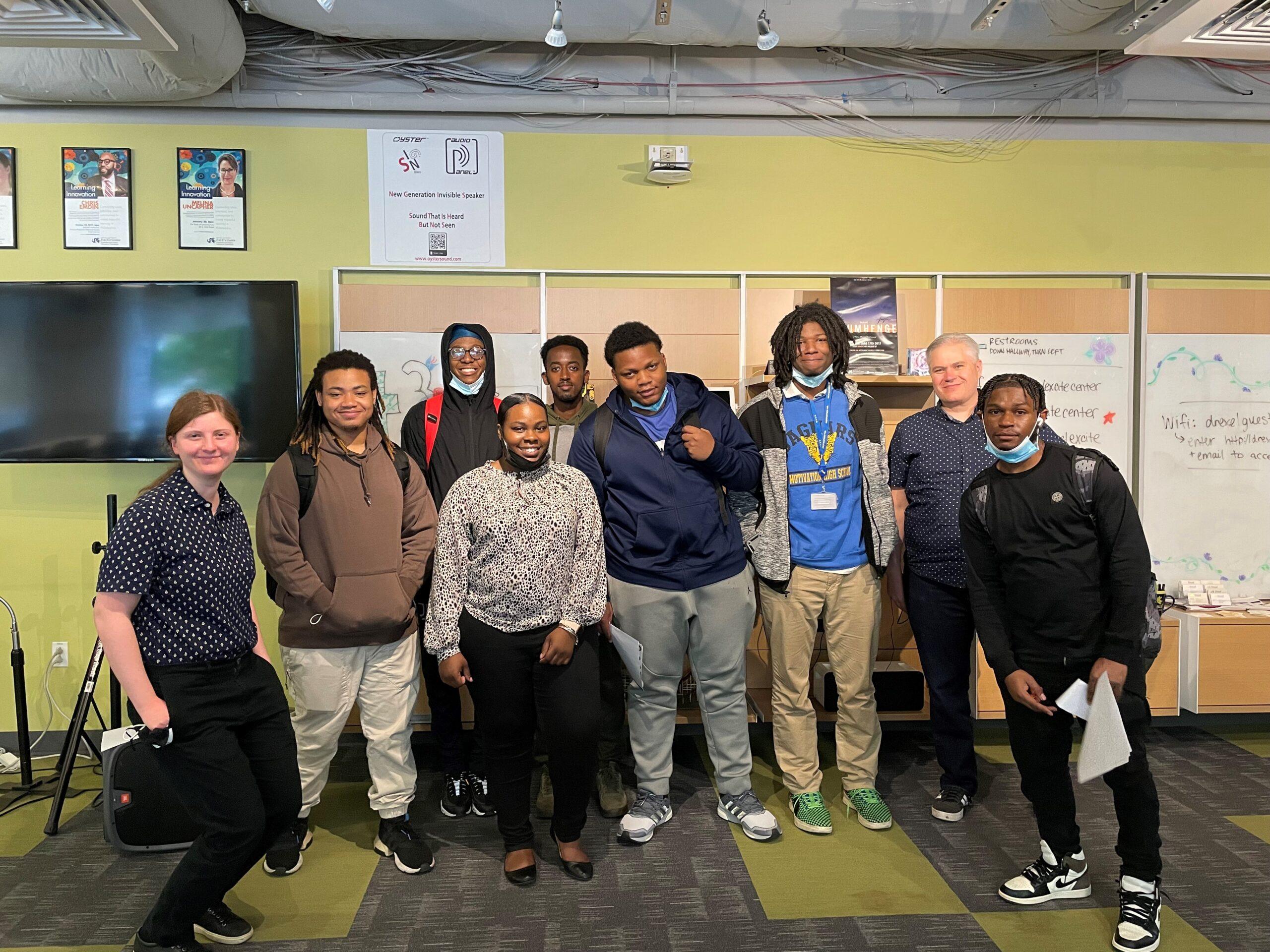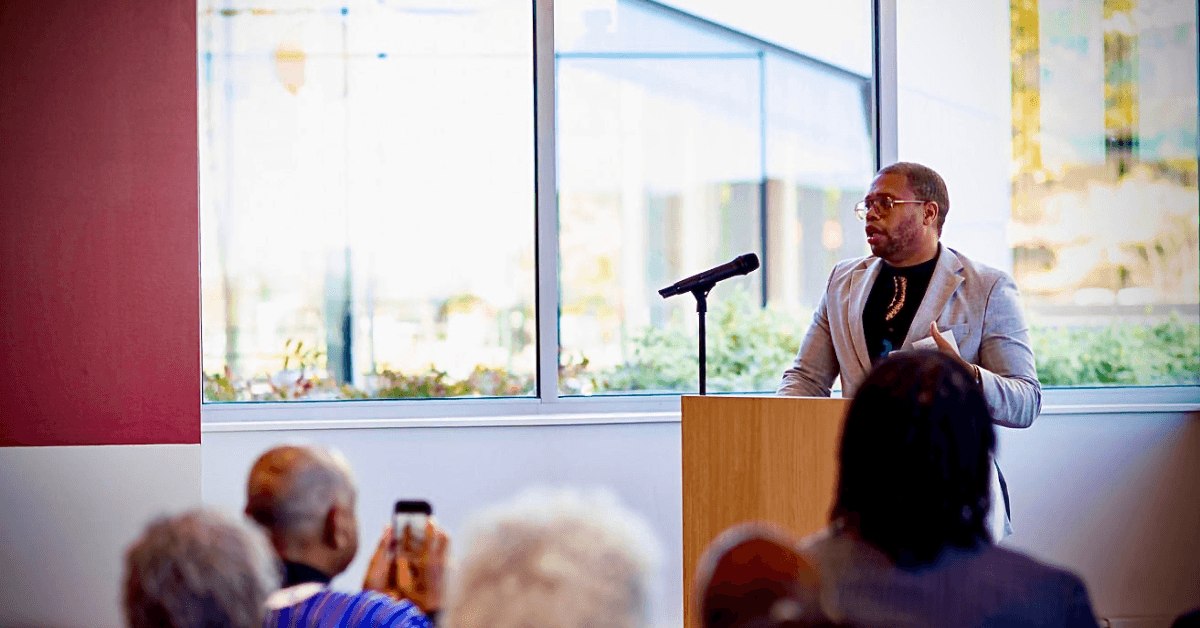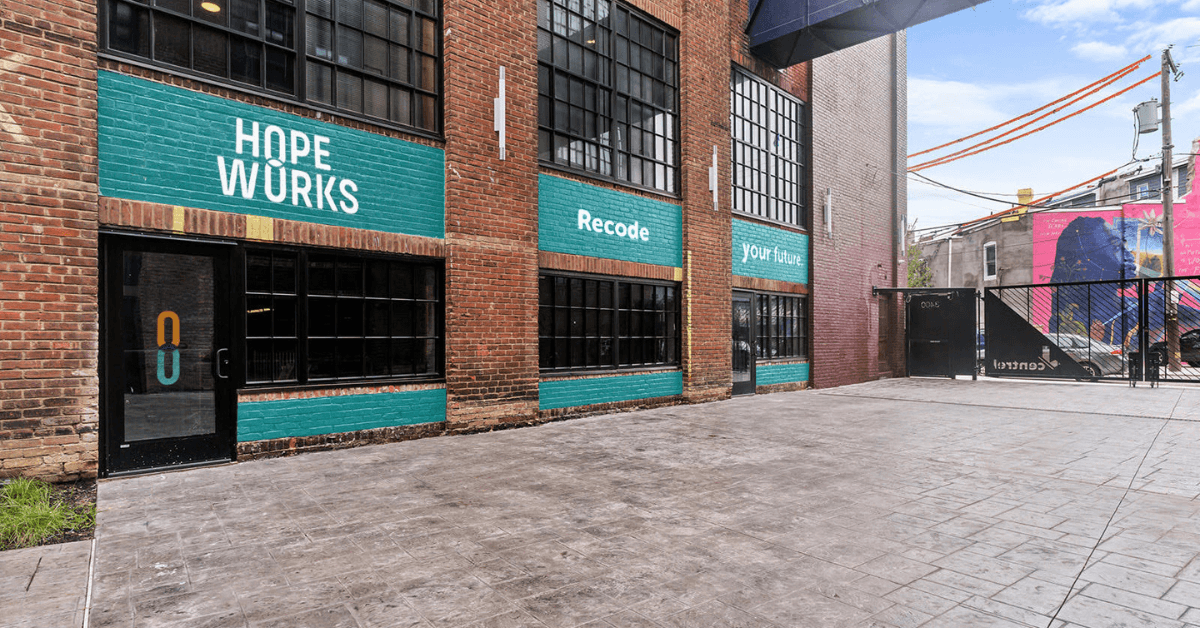Key Insights:
- Black and Hispanic Americans only comprise 17 percent of STEM workers in the United States.
- A new organization, Black Tech Philly, developed a web development course for high school boys at Boys’ Latin of Philadelphia.
- Two additional programs, DanceLogic and Philly Tech Gateway, are taking new approaches to teaching children about coding; the former using dance and the latter incorporating career readiness skills.
To increase diversity in technology, many working in tech and child care advocate for introducing science, technology, engineering and math (STEM) career options at the K-12 level.
In 2019, women constituted 34 percent of STEM workers but 52 percent of the general workforce, according to a National Science Foundation report, while Black Americans made up nine percent of STEM workers and 12 percent of the workforce. Similarly, Hispanic Americans made up only eight percent of STEM workers but 17 percent of the workforce.
Organizations and programs developed in the last few years across Philadelphia are designing STEM-focused programs for middle and high schoolers to address this deficit.
Black Tech Philly
Black Tech Philly, a predominantly virtual space for Black tech professionals, was started by three Black men, Ian Kimble, Khalil Saboor and Ryan Small, in 2020 to provide educational tools to Black and brown communities in Philadelphia and raise awareness about careers in tech.
The organization launched its first initiative in Spring 2021 at Boys’ Latin of Philadelphia, an all-boys, predominately Black school. Ian Kimble, the executive director of Black Tech Philly and a software engineer at Change Machine, taught introductory web development to high school juniors and seniors. Around 30 students learned how to use HTML, CSS and JavaScript, culminating with a final project creating a mock social media app.
“[The program] can give young students a preview of what’s out there, not even from a career standpoint, but an interest and engagement standpoint,” Kimble told The Plug. “There are so many imaginative children and young people, who through this cohort, I had the pleasure of meeting. They were interested in building computers and making games and to provide them with those tools, at least to get them started, is in my opinion very important.”
The organization will be hosting its second cohort, the Black Tech Philly Summer Code Camp, in July. This time, the course will be taught to freshman and sophomore students at Boys’ Latin of Philadelphia.
Philly Tech Gateway
Philadelphia Academies Inc., which supports underserved students in Philadelphia, created its first afterschool program in partnership with the education non-profit Coded by Kids. The program, Philly Tech Gateway, is funded by 1Philadelphia, a city-wide initiative to create an equitable tech ecosystem in Philadelphia through a tech education system.
Philly Tech Gateway provides career exposure to software development and design for 11th and 12th graders residing in West Philadelphia. The first cohort ended in June and had a total of eight students who built and designed websites by learning HTML and CSS coding. Each website focused on a social issue of the students choosing, ranging from financial literacy to gentrification to gaming data management.
“Where are you going to find the talent if you don’t have any resources to recruit the talent and give that pipeline introduction to [STEM careers],” Dashiyah Green, program coordinator of Philly Tech Gateway, told The Plug. “There are students out here that want to do it, but they just don’t know where to start.”
All graduating seniors are moving on to post-secondary opportunities. Those going to college will be studying computer science, information technology and graphic design, while one student will be doing an IT apprenticeship. All students who participated in the program are now working summer internships with tech startup companies as well as Drexel and Temple Universities’ tech departments.
Philly Tech Gateway is currently accepting applications for its second cohort launching in the fall. In addition to receiving instruction from Coded by Kids, the program plans to bring in industry partners to expose students to other sectors of technology beyond software development and expand their skills through learning how to refurbish devices or use 3D printing technology.
“The more exposure, the better,” Green said. “I had one female student [who said] ‘I feel way more confident being in a tech field by completing this program,’ and that was really touching. This is what we do it for. We want to make sure that they have the skills, tools and confidence to feel like ‘I belong in this industry.’”
“We want our students to see themselves in these industry professionals we’re bringing in. We had two [Coded by Kids] instructors, both are people of color, one is female, one is male, and it was fabulous to have that diversity so that students are seeing people who look like themselves and are successful in these careers,” Cheryl Lafferty, the senior program director at Philadelphia Academies Inc., told The Plug. “I don’t think it happens enough.”
DanceLogic
DanceLogic is a program that combines the art of dance and computer coding for girls of color aged 12 to 18 across the city. It is run by the West Park Cultural Center, a community center in Philadelphia. Students participate in an hour of dance lessons followed by an hour of coding linking the concept of repetition that is central to both.
“We’re trying to raise the number of females, especially African American females in the STEM industry, so by introducing them to STEM in a fun and unique way, we’re hoping that it really takes off,” Niesha Kennedy, the communications manager at West Park Cultural Center, told The Plug.
DanceLogic was started in 2018 by Betty Lindley, the executive director of the West Park Cultural Center, and Franklyn Athias, an engineer and former senior vice president at Comcast Cable. The last cohort that ended in June had about 10 participants.
Most girls participate in the program at no cost as DanceLogic is funded through grants and individual donations. Additionally, students who complete the program receive an iPad or MacBook from Athias to have the opportunity to continue coding.
“I see these girls come in and have really honestly no interest in the coding part. They’re just there because it’s dance, and then I watch them … start to like what they do. I see them smiling in class. I see the moments when they get it and that is very important because with technology growing and changing every day, it’s so hard to keep up,” Kennedy said. “Having this experience in STEM will help them succeed in all parts of life, not just in science.”
Why Focus on K-12?
Individual small programs may not solve the issue that the tech workforce is overwhelmingly male and white, but Philadelphia is on the right track by looking at the ecosystem holistically.
Jumoke Dada, a technologist based in Philadelphia who works as the project manager for Making Space, a cybersecurity diversity initiative, told The Plug educators also need to receive education on STEM instruction.
“We are facing a crisis, but we know how to begin fixing it. We have the tools. Our policy needs to build inclusivity from the start and that’s why it’s incredibly important to focus our efforts on building the pipeline, expanding K-12 education, and funding recruitment and retention,” Dada co-wrote in Ms. Magazine with Tatyana Bolton, the policy director for the R Street Institute’s cybersecurity and emerging threats program.
“We need to start early, make education on coding and technology accessible at all schools from an early age, and show through our actions, that careers in cyber are accessible to all,” they said.








